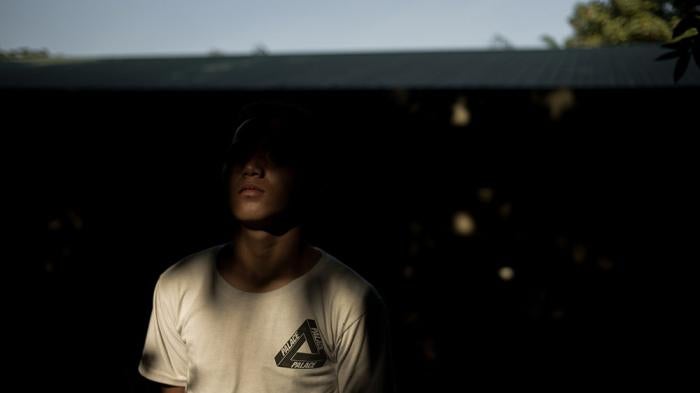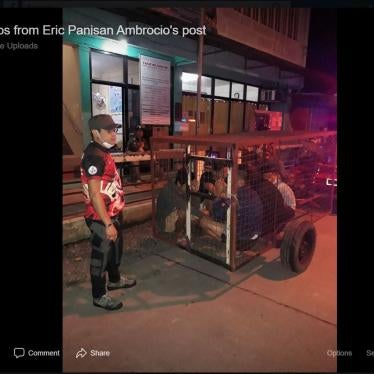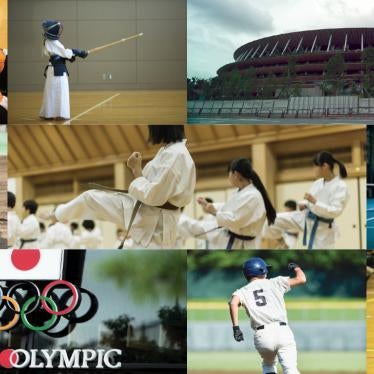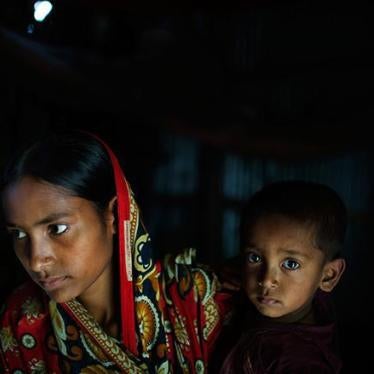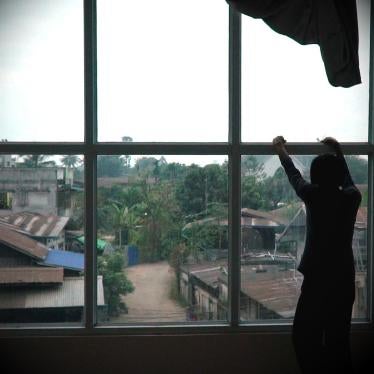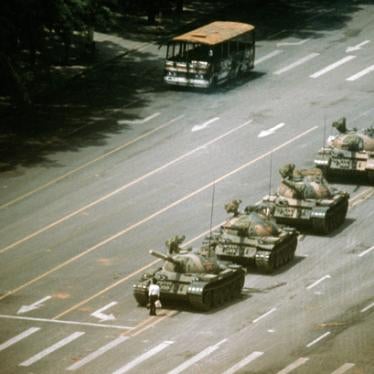(マニラ)―フィリピンのロドリゴ・ドゥテルテ大統領が率いる「麻薬撲滅戦争」により、フィリピンで何千人もの子どもたちが、長らく身体的・情緒的・経済的に苦しみ続けている、とヒューマン・ライツ・ウォッチは本日発表の報告書および動画内で述べた。2020年6月の国連人権理事会会合で、各国政府は、フィリピンの「麻薬撲滅戦争」での殺害(子どもを含む)に関する独立した国際調査を支持すべきだ。
報告書「『幸せだったぼくの家族はもうない』:フィリピンの『麻薬撲滅戦争』が子どもに与える影響」(全48ページ)は、親など保護者を殺された子どもたちの置かれている苦しい状況を詳しく調べた報告書。多くの子どもが精神的苦痛にさいなまれ、かつ一家の働き手の死によって経済的な困難に直面している。貧困とトラウマの悪化により、学校をやめたり、働かざるをえなくなった子どもも多い。中には学校や地域でいじめにあったり、路上生活を強いられている子どももいる。
ヒューマン・ライツ・ウォッチのフィリピン担当調査員カルロス・コンデは、「ドゥテルテ大統領が違法薬物使用が疑われる市民に対して、警察とヒットマンを放っている。その結果、フィリピンの子どもたちがひどく苦しめられている」と述べる。「政府は、子どもの生活を脅かしている長年の暴力を停止し、被害を受けた子どもたちに直接の支援をする必要がある。」
ヒューマン・ライツ・ウォッチは本報告書のために49件の聞き取り調査を実施した。対象者は子ども10人、親や親戚、保護者 23人、政府関係者やNGO職員、コミュニティの指導者たち16人。マニラ首都圏を含む6つの都市および州でおきた23件の「麻薬撲滅戦争」による殺害を調査・検証した。
フィリピンの麻薬取締局は、国家警察による2016年7月1日〜2020年1月31日の対麻薬取締作戦中に5,601人の容疑者が死亡したと報告。警察は容疑者が抵抗したため殺害に至ったと主張している。正体不明の武装集団や「死の部隊」(多くが警察関係者とみられる)が殺害した数千人は、この数に含まれていない。
フィリピンの複数の子どもの権利団体は、2016年半ば〜2018年の対麻薬取締作戦に居合わせた101人の子どもが、超法規的に処刑あるいは殺害されたと記録している。2019年と2020年の報道でも、子どもの殺害は依然として続いている。
本調査では「麻薬撲滅戦争」暴力の結果は、殺害だけではないことを示している。子どもたちは愛する家族が殺されたことへの苦しみを訴えた。ジェニファー・Mは、2016年にケソン市で父親が警察に殺害されてから食べることができず、ストレスに苦しむ。学校ではいじめにあっているという。聞き取り調査当時12歳だったジェニファーは、「警察が憎いです。命乞いをしたお父さんの言うことを聞いてくれなかったから」と訴えた。警察はジェニファーの目前で父親を殺害した。
2016年にマンダルヨン市で殺害されたレナート・Aの遺族は、彼の死以後、極度の困難に直面している。 3人の子ども(当時13歳、10歳、1歳)は学校に行かず路上生活をしている。「お父さんが亡くなってから、もっと働かなくてはいけなくなりました」と、家計を助けるためにゴミ収集をしている長男のロバートは言う。「ぼくは弟たちの父親になったんです。」
政府の支援がないことで、こうした子どもたちの状況は悪化していると言える。ドゥテルテ政権は、麻薬戦争による暴力で家族を失い取り残された子どものニーズに対応できるプログラムを有していない。さらに、子どもたちは、「麻薬撲滅戦争」で受けたスティグマ(不名誉)の結果、政府に助けを求めるのをためらうことも多い。社会福祉開発省は、埋葬費用の負担といった通常支援こそすら、遺族に対するアウトリーチ活動は行っていない。精神衛生関連の支援は宗教団体やNGO、地域のコミュニティグループまかせだ。
2018年2月に国際刑事裁判所(ICC)はドゥテルテ大統領に対する「麻薬撲滅戦争」関連の申立てで予備調査を開始。フィリピン政府はこれに反発して同裁判所から脱退した。 2019年6月には国連人権理事会が、フィリピンの人権状況に関する包括的な報告書の提出を国連人権高等弁務官事務所に求める決議を可決。同事務所はジュネーブで今年6月に予定されている理事会会期中に報告する見通しだ。
コンデ調査員は、「国連人権理事会は国際的な調査団を設置し、命を奪ってきた『麻薬撲滅戦争』に終止符を打つようフィリピン政府に迫るべきだ」と指摘する。「今行動しなければ、フィリピンの子ども世代全体が、大統領の反麻薬キャンペーンによる暴力の被害を受けることになろう。」
インタビューを受けた子ども、親、保護者の証言の一部は下記よりご覧ください。
Jennifer M., daughter of Benigno M., killed in December 2016:
I was confused because I didn’t understand why. Why my papa? Of all the people outside, why did they pick my father? I was angry at the policemen because my father was begging for mercy, but they didn’t listen to him. That’s why I was so angry.
I can’t explain it because with so many being killed here in Payatas, it’s like your mind gets muddled. How else to talk about it? What goes through your mind when you remember what happened? It's like your mind is in disarray.
Malou M., Jennifer’s mother:
It’s hard because you don’t know how you’re going to start, how you’re going to fend for your children, how you’re going to send them to school, and how you’re going to pay for their daily expenses and their meals. There are times they can’t go to school because they don’t have school allowance. We lost our tap water because we can’t pay the water bill, and electricity, and many more things.
Randy delos Santos, uncle of Kian delos Santos, 17, killed in August 2017:
If not for the CCTV footage, the truth about my nephew’s death may not have been known and there never would have been a case against the policemen.
Robert A., whose father was killed in December 2016:
We were out to buy peanuts. My cousin and I saw four men riding two motorcycles without plate numbers, their faces covered, wearing jackets. I tried to chase them, I tried to get ahead of them. I did everything I could to reach my father first, but it was too late. I saw my father being shot.
John [Robert’s brother] was more affected by my father’s death because ever since my father died, I don’t see him happy anymore. If I see him smile, it’s forced. He’s still looking for our father because he was my father’s favorite. He easily gets angry now and he lost trust in people.
I had to work harder when my father died. I became a father to my siblings because I don’t want to see them suffer … so I’m doing everything I can. I force myself to work even if I don’t want to. I force myself for me, for my siblings.
Karla A., Robert’s sister:
I was there when it happened, when my papa was shot. I saw everything, how my papa was shot.… Our happy family is gone. We don’t have anyone to call father now. We want to be with him, but we can’t anymore.


